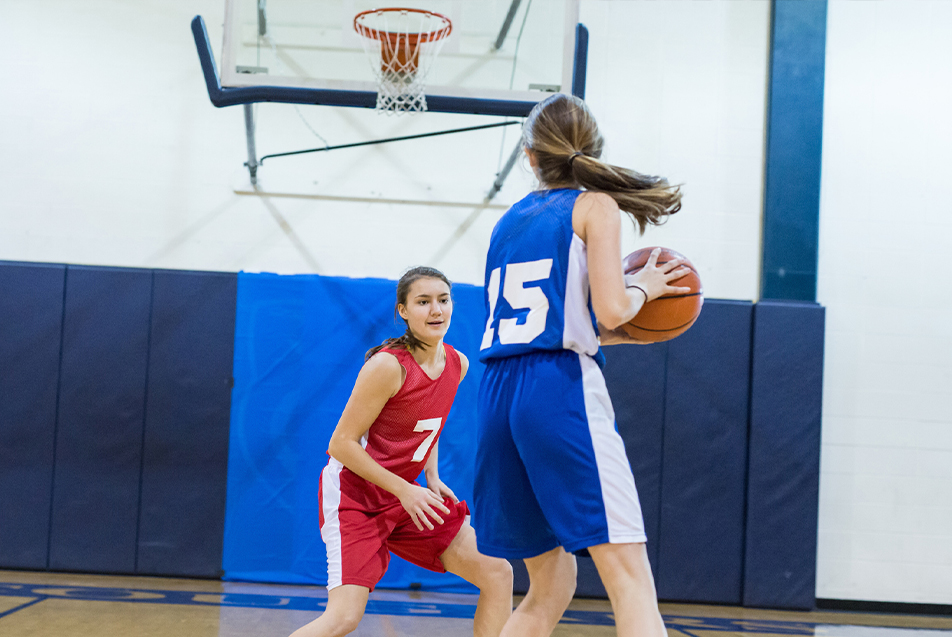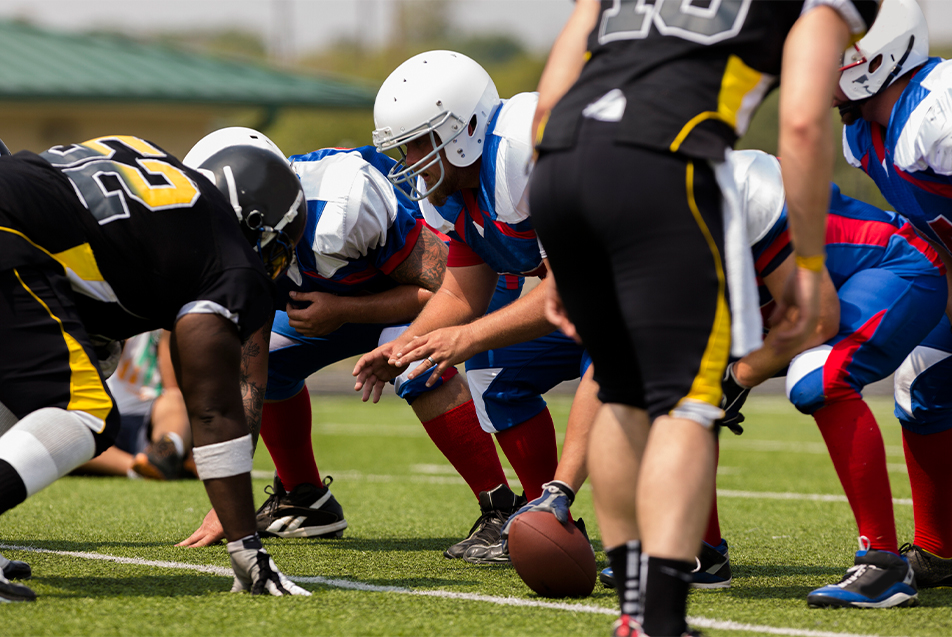
With fall sports season upon us, concussions are surging to the forefront of youth sports discussions once again. Joseph M. Mattox, MD, spends time treating potential concussions in youth athletes at our referral-only Concussion Clinic inside Parkview Ortho Express at the SportONE/Parkview Fieldhouse. Dr. Mattox offers his expertise below regarding some of the most prevalent concussion questions.
Q: What is a concussion?
A: A concussion is defined as a mild traumatic brain injury that affects brain function. The effects of a concussion are typically temporary, and can include headaches, difficulty with memory and concentration, and issues with balance and coordination.
Q: What causes concussions?
A: Concussions are caused by direct or indirect biomechanical forces – like a blow to the head or violent shaking.
Q: Are concussions really a major problem for athletes?
A: Yes. It’s estimated that over three million concussions occur among participants in sports and recreational activities each year. Football, ice hockey, soccer, and lacrosse athletes tend to have the highest amount of concussive incidents.
Q: What are the signs that my athlete has suffered a concussion? Which symptoms require an emergency room visit and which may be monitored in an outpatient setting?
A: Symptoms may be subtle and not immediately noticeable. They can last days, weeks or even months.
Symptoms requiring an immediate ER visit include:
- repeated vomiting
- loss of consciousness
- worsening headaches
- changes in behavior
- changes in coordination
- confusion, disorientation, or slurred speech
- bleeding from the ears or nose
- seizures
- dilated pupils
Less severe symptoms requiring an outpatient concussion evaluation include:
- headaches, nausea, and vomiting
- trouble balancing or dizziness
- sleep disruption, including fatigue, trouble falling asleep, increased or decreased sleep
- sensitivity to light and noise
- feeling more emotional – increased nervousness, irritability, or sadness
- feeling numb, slowed down, or foggy
- difficulty concentrating or difficulty with memory
Q: What happens immediately after a concussion occurs?
A: Parkview Sports Medicine providers certified athletic trainers (ATCs) to 26 local high schools, 5 universities and 10 club sports teams, and our ATCs are often the critical first point of contact when a concussion happens.
When a concussion is suspected, the athlete should be immediately removed from the field of play. Treatment is then initiated based on the ATCs evaluation of symptoms on the sideline. If a concussion is suspected or diagnosed, the athlete should not return to play. Typically, an evaluation should be scheduled with a physician trained in the treatment of concussions with 48-72 hours of injury.
At Parkview Sports Medicine schools, our ATCs will quickly contact Care Navigation to get your athlete scheduled for an evaluation at our concussion clinic.

Q: After the evaluation, how is my athlete treated?
A: Concussion symptoms will be closely monitored and treatment is based on those observations. We conduct a physical exam specific to concussions and use a post-concussion symptom scale. The exam includes a complete patient history evaluation, neurocognitive testing and vestibular/ocular motor screening (VOMS). Once the evaluation and testing are complete, we’ll formulate a plan for the individual to first return to the classroom safely – then return to the field of play.
Once an athlete is able to participate in normal daily activities and begins more advanced physical activities, the athlete will be required to complete a return-to-play protocol under the direct supervision of the ATC.
Q: What have we learned about the long-term effects of concussions?
A: There is a lot that is unknown about the long-term effects of repeated concussions. Despite that, current studies are ongoing and have shed some light on common themes related to the effects of concussions.
- Evidence from multiple studies indicates that the brain is at heightened risk while recovering from a concussion. This means that a repeat injury while recovering from a prior concussion may occur with less force, take longer to resolve, and may have devastating long-term effects. This illustrates why it’s essential to safely complete a return-to-play protocol before returning to play.
- Depression and chronic traumatic encephalopathy (CTE) are two major, long-term consequences of repeated head trauma. Studies and surveys involving retired professional athletes have shown that sustaining multiple concussions increases the risk for depression. In fact, researchers noted that compared with retired players with no history of concussions, those with three or more diagnosed concussions with three times more likely to be diagnosed with depression.
CTE is a degenerative brain disease found in those with a history of repetitive brain trauma, including athletes that have suffered concussions. CTE causes brain cells to die off, leading to symptoms including depression, poor impulse control, Parkinson’s disease and dementia. Additional evidence indicates that sub-concussive hits – repetitive hits to the head that do not technically cause a concussion – may be the biggest cause of CTE.



